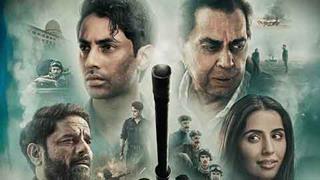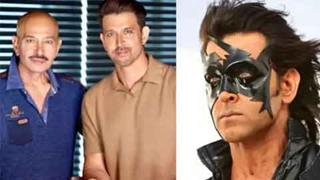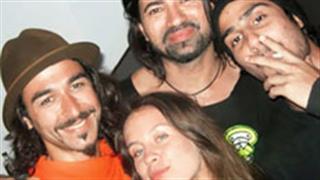They stay with a film for months on end, but you never find an editor's name on a film poster or in a promo? Editors in Bollywood rue that they are not only badly paid and unrecognised but also face competition from untrained hands and computerised equipment.
"Editors don't get recognition. Their names are not put on the posters. A music director or a lyricist only contributes to 20 to 25 minutes of a film, but their names are on the posters, " Shirish Kunder, who edited hits like "Om Shanti Om" and "Main Hoon Na", told.
"An editor's work is no less than that of a cinematographer. A cinematographer works for about 70 days of the shooting, an editor works for five to six months. But for some strange reason editors are not considered important enough, " he said.
Suresh Pai, who worked on "Page 3" and "Bheja Fry", said: "Editors are there throughout, deciding the course of content but their names are hardly ever mentioned in the promos. It definitely hurts."
Even reviewers don't dwell on technical aspects of editing. "At one time they used to mention it, but not now. May be they are not knowledgeable or trained to be able to comment on it, " said Kunder.
Sanjib Datta, who edited films like "Dor" and "Hyderabad Blues 2", feels reviewers sometimes write just for the heck of writing.
"For a film, they had written, 'I think there shouldn't have been the first half at all. So what you do expect, the film should be just 50 minutes long? If they say the pace is slow in the first half, it hurts. It's not my independent decision."
Editors are not well-paid either.
"The scene was really bad from 2003 to 2005. Again when reality shows came up, there was a rise in an editor's payment, " said Sandeep Singh Bajeli, who edited "Phas Gaye Re Obama".
He says remuneration also depends on the budget of a film.
"If I am doing a Rs.1.5 crore movie, I can ask for Rs.2.5 lakh. After a director, comes the cameraman's payment. The sound engineer and editor receive the same treatment. I am always fearful about the last payment because by that time the director might say if the distributors buy the film, then only we will pay the last instalment, " he said.
Datta says working with independent producers is a risk.
"Once the job is done, independent producers don't pay. I have lost a lot of money like that. Many well-known producers are bad pay masters as well. They think it's our privilege as a technician to work with them and not the other way round, " he said.
The highest payment is about Rs.20 lakh and minimum can be Rs.1 lakh or even less, said Pai. "It depends on the kind of person who is employing you. If he is not bothered about the quality, then the remuneration would be much less."
The premiere Film and Television Institute of India (FTII) in Pune, Digital Academy in Mumbai, Flash Frame Visuals Academy of Film and Video Editing in Bangalore and CRAFT: Center for Research in Art of Film and Television in Delhi offer film editing courses.
CRAFT charges Rs.75, 000 for a one-year film editing course.
Pai said: "Other than FTII, the rest are moneymaking organisations...teach backdated stuff. A few believe getting hands on experience while working with senior editors reaps better results than formal training."
"The scenario for upcoming editors is bleak because anyone is ready to edit for any amount. Even high school dropouts or studio attendants who know the equipment call themselves editors, " he said.
Kunder doesn't believe in training institutes. "They teach you outdated stuff. I think one should join an editor, learn the craft...that's the way I learnt, " he said.
There is a handful of trained editors left in the industry.
"Most of them are untrained; so the quality of editing is bad. There are a few people who actually edit a film; the rest are not editing but cutting films, " said Kunder.
Said Dutta: "Nowadays the scenario is a little dark. With the advent of the computerised editing machine, even operators are becoming editors. Many directors feel that since they have shot the film, they know everything and to cut the budget, prefer to work with such operators."
Bajeli admits there is competition.
"To get good jobs, you have to have contacts and build up relationships. Of course, talent is also key but only when you get a chance can you showcase your talent, " he said.
Edited out: Bollywood`s editors unrecognised, underpaid
Wednesday, April 06, 2011 12:06 IST



















